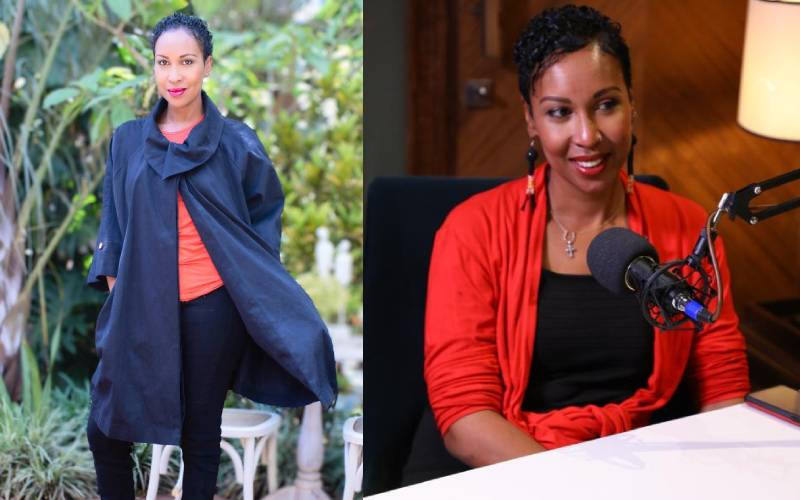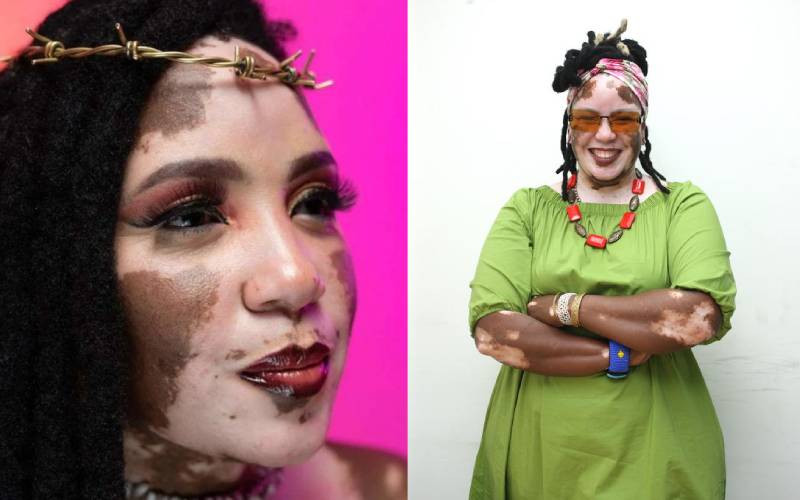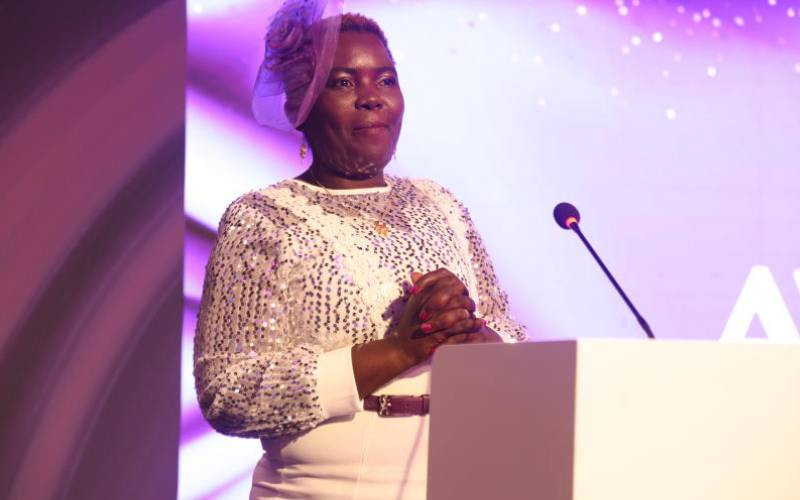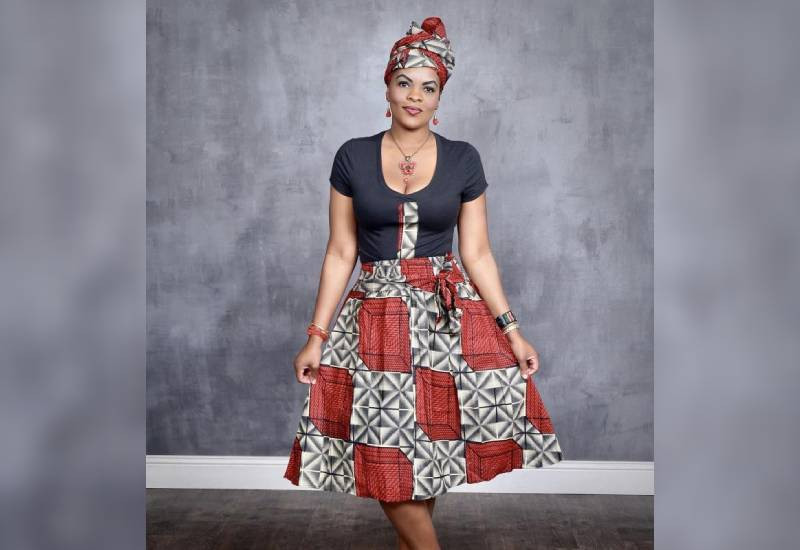
Caren Wakoli is a delightful and vibrant person, full of love and life. She is intelligent, accomplished, sophisticated and classy. Her faith and spiritual beauty are unquestionable.
At 42, the founder and Executive Director of Emerging Leaders Foundation-Africa, is the envy of many. Her over 18 years of engaging in youth empowerment in Kenya and Africa have seen her earn accolades from former US President Barack Obama and the late President Mwai Kibaki.
“I…know people like Caren Wakoli who started Emerging Leaders Foundation to get young people involved in the work of fighting poverty and promoting human dignity…,” said President Obama in his speech at the Nelson Mandela Lecture in South Africa in 2018.
In 2008 during the launch of Vision 2030, she articulated the issues affecting young people even as she urged political leaders to shun divisive politics. Instead, she asked the leaders to prioritise issues affecting the younger generation.
Her presentation earned her a standing ovation from leaders present, including vice president Kalonzo Musyoka and William Ruto, among others. When it was Kibaki’s turn to address the audience, he shelved his speech and instead paid glowing tribute to Caren.
“After listening to that girl, I have decided not to read my speech. Whatever she said is what we must follow as a nation, and we will be just fine,” Kibaki said. She was later appointed to serve on the National Council of African Peer Review Mechanism at only 27 years in 2009. Over time she has served on many boards, including Nacada, Uwezo fund, chair of Nairobi County Youth Oversight Board and National Committee of Nyumba Kumi. Others include UNDP Youth Sounding, The Youth Congress (Chair), Siasa Place, YALI East Africa and Impact Africa Industries, among others.
And though she has covered so much ground in youth leadership, she believes there is still much to do.
“There is so much work to do not only in Kenya but in many African countries,” she says with a brilliant smile.
- How to baby proof your home in Kenya
- Parental kissing: Should parents kiss their children on the mouth?
- The cost of mother shaming
- Fear of a 'toxic' label should not deter parents from disciplining their children
Keep Reading
But the journey has not been a rosy affair; growing up, she faced challenges like inadequate resources. Many times, together with her siblings, they were kicked out of school for lack of fees. However, a twist of fate brought grace into her life when a high school teacher stepped in, paying her fees and providing essential support. This gesture not only allowed Caren to continue her education, but the teacher also extended the favour to her two siblings. Her leadership aspirations were sown during her formative years.
“As I was seeking guidance from other people, I realised that the quality of life that people experience is linked to the calibre of their leaders. If you have good leaders, they will pass policies that are people-driven, and people will live in dignity.” She adds.
She became deeply motivated to contribute to leadership that would uphold dignity, enabling individuals to pursue their dreams unhindered. “I define dignity as the ability to be and become without fear, favour, and intimidation. I want to see parents being able to take their children to school and pursue their dreams without limitations.”

She later joined the University of Nairobi, where she faced the challenges of navigating a new environment while assuming responsibilities as a mentor to fellow freshmen. Her transition to student politics in 2002 was a leap of faith marked by fear and uncertainty. Despite warnings from her father, Caren embraced the opportunity that she believed had knocked on her door.
“My friends went ahead and got nomination papers and went around collecting signatures. They later told me to submit the signatures to the election committee,” she says.
Though not fully persuaded, her father asked her to give it a try but to be cautious. Through persistence and determination, she secured a leadership role within the student body, a stepping stone that would prepare her for the days ahead. The following year, she courageously contested and won the position of Gender Secretary at the university,
“I didn’t have money then, I was getting HELB and sending it back home to pay school fees for my younger siblings. I also used to get sales jobs to take care of myself and my siblings. So, my friends contributed money and made posters for me.”
While her involvement in student leadership deepened, she recognised deep-rooted corruption within these circles. The brazen corruption disturbed her, and she decided to vie for a position that would make her in charge of student funds.
“There had been no female vice chair before, and I faced serious challenges. One of my competitors even sent goons to warn me to step down and offered me money. They even spread some propaganda to put me down; the campaign was crazy.” Caren was forced to arrange for her own security as she knew things could get nasty.
“I won and became the first female vice chair of the Student Organisation of Nairobi University and this inspired many women to vie for the position,” she says.
“We even later had a woman as chair of SONU,” she adds.
Caren’s journey extended beyond the confines of campus. She became a representative of young people in the National Youth Council, advocating for meaningful youth participation in governance. Her political aspirations encountered obstacles, but these setbacks fueled her resolve to empower others with the tools necessary for effective leadership.
“Before this was success after success. No failure, everything I wanted came to be, but after vying for a political seat and going to the ground, I realized I needed money to mobilize people. My father advised me to go back and practice journalism as politics is for people who have retired. I dropped out of the race, I felt shattered, and I didn’t have a plan B”
After realising life was not stopping for her to recover from her loss, she went back to working with the youth in the slums and got elected as the chair of the youth congress in Kariobangi where she advocated for youth representation and participation, especially in government programmes.
During her time at the African Peer Review Mechanism (APRM) she was voted to be the youth spokesperson at the African Union summit. This propelled her to the global stage. She recalls an APRM meeting in Ethiopia in 2012 that changed her life.
“Liberia was being admitted to be APRM compliant, and President Ellen Johnson Sirleaf was there, and I wondered why in a whole continent we could only produce one woman president,” she says.
“If we could have more women presidents, I believe Africa would be less corrupt,” she adds.
She came back and founded the Emerging Leaders Foundation (ELF). This endeavour was not without its challenges, bureaucratic hurdles and financial constraints tested her resilience.
“I thought if I had mentorship I could have joined politics with better awareness so would other women. Before this, I had gone through a whole journey of identity crisis and low self-esteem and I wanted to support other young people to know who they are.”
Undeterred, she began mentoring female student leaders in her one-bedroom apartment in Nairobi estate.
“As we looked for funds some people would ask for kickbacks, but I refused as I was establishing an organization based on integrity,” she notes.
Things got tough in 2015 and Caren was forced to look for a job to survive. All along, she had been holding up thanks to consultancies here and there. The dreams she had for the organisation were getting dimmer by the day. At some point, a donor pulled out and even recalled the computers he had donated to the organization
“Had I known the challenges I was going to face for almost six years, I might not have begun the journey. I was writing proposals year in and year out with no success.”
Despite the arduous journey, Caren’s efforts began to bear fruit. She later got her first funding that expanded the organisation’s reach, formalizing its programmes and developing a curriculum on good governance and youth mentorship.
ELF-A impact extended to nurturing ethical civil servants, politicians, social entrepreneurs, and grassroots organizations. Caren’s dream of a dignified society, built upon the shoulders of ethical leaders, came into clearer focus.
“My dream is for us to have a society that lives in dignity, and that will be achieved from the leaders that we nurture.”
Her advice to aspiring leaders is that the pursuit of money should not overshadow the pursuit of integrity and purpose.
Caren’s philosophy reflects her belief that leaders are moulded within their families, how children are loved and honoured is what they replicate or do to people when in leadership positions.
“Children who are not loved or taken care of well, when they get to senior roles want to be felt seen, heard, and worthy and feel like the more money I have, the more respect I command yet value is innate in every human being.”
She draws inspiration from her mentor, President Ellen Johnson Sirleaf.
“At ELF-A we believe in storytelling and also run modules where we support young people in telling their stories and mentorship. As a young person, if you believe in yourself there is nothing that you can’t do, you will meet setbacks along the way but you will be able to navigate that.”
 The Standard Group Plc is a multi-media organization with investments in media platforms spanning newspaper print
operations, television, radio broadcasting, digital and online services. The Standard Group is recognized as a
leading multi-media house in Kenya with a key influence in matters of national and international interest.
The Standard Group Plc is a multi-media organization with investments in media platforms spanning newspaper print
operations, television, radio broadcasting, digital and online services. The Standard Group is recognized as a
leading multi-media house in Kenya with a key influence in matters of national and international interest.










